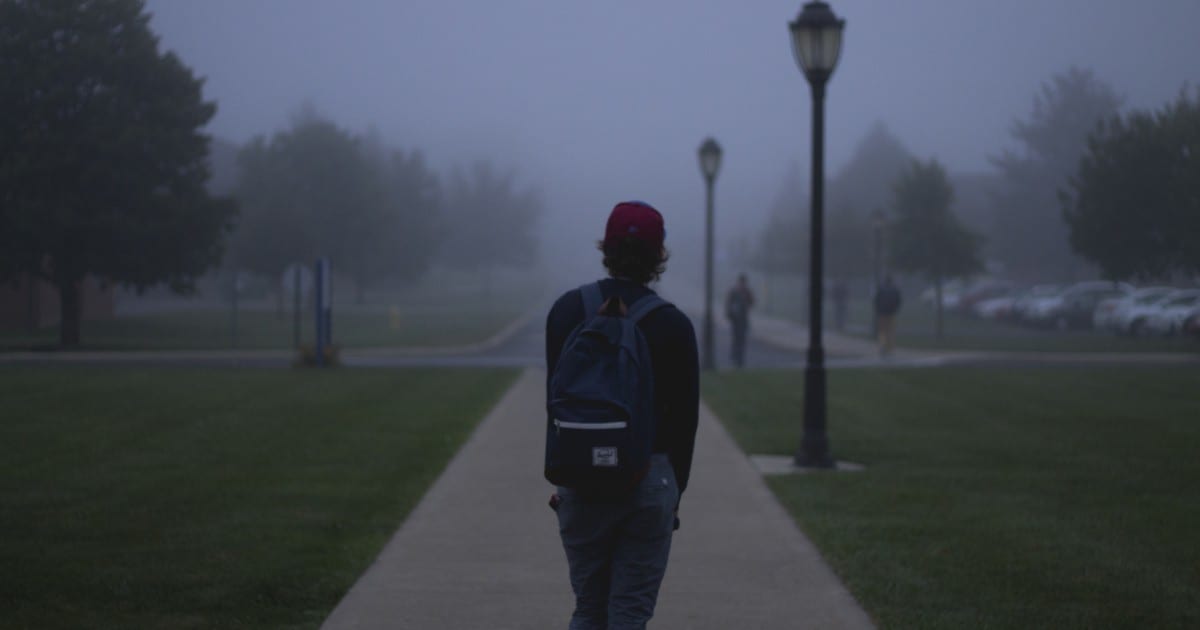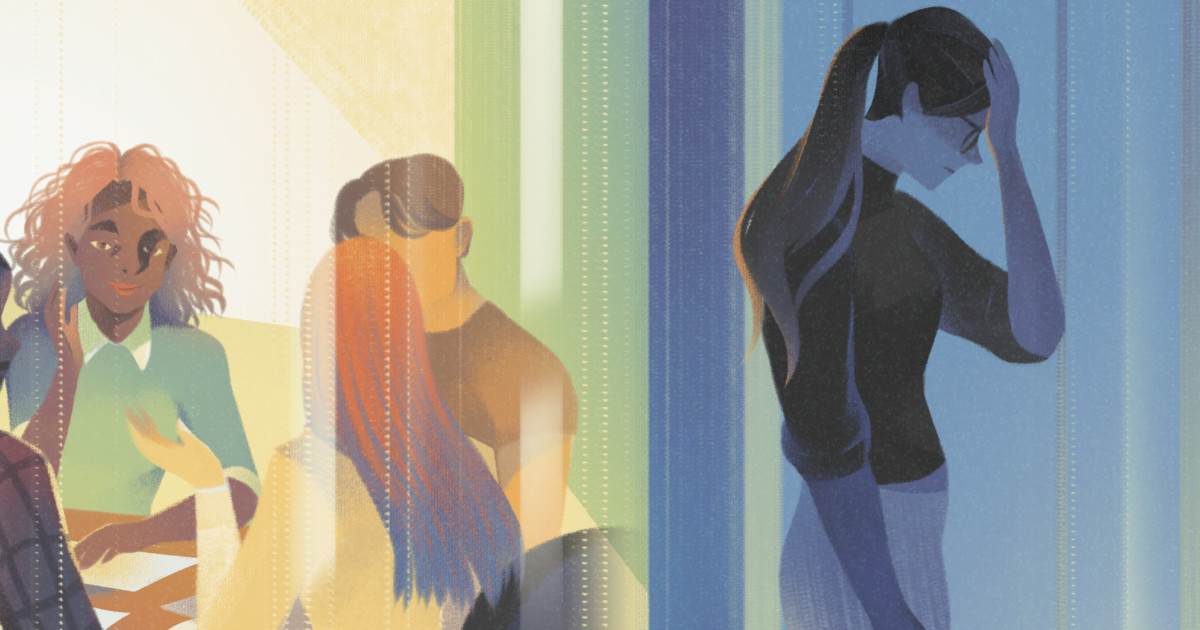New York University brings awareness to campus health services with musical theater for and by its students
On a Tuesday night in January, incoming New York University transfer students filled the Skirball Center for the Performing Arts for a mandatory part of their orientation: The Reality Show, a 90-minute musical theater performance.
The title may have pop-culture levity, but the content has heft: written, choreographed, and performed by students, the show highlights challenges and pressures new students might face during their years at the school, it sends a strong message that it’s okay to reach out for help if you’re dealing with stress, substance abuse, sexual abuse, or mental health issues.
Throughout the performance, one line is repeated again and again: “Call (212) 443-9999.” By the end, audience members were reciting the number along with the cast like a chorus.
That number rings the NYU Wellness Exchange hotline, a 24-hour service that provides counseling and support for students.
At surface level, The Reality Show is a vehicle to ensure that students know about the hotline, but the subtext is equally important, conveying that there’s no stigma associated with calling the hotline or using any of the campus’s mental health services.
The show had its first run in 2004, a time of crisis for NYU. The school was reeling from seven suicides in 12 months. As part of the school’s struggle to cope with loss while seeking wellness solutions, the 24-hour hotline was created, as well as the theatrical performance to introduce it.
The school tapped playwright Elizabeth Swados, a four-time Tony Award nominee known for creating socially engaged musical theater, to direct a show created by the students. Swados, who had recently been hired full-time at the NYU Tisch School of the Arts, specialized in working directly with communities to create plays that reflect their realities. She worked on The Reality Show annually until her death from esophageal cancer earlier this year.
Preston Martin, who took over as director in 2013, is dedicated to maintaining her ethos of the vulnerability and power of a community holding up a mirror to itself.
“It has to be so funny that I’m crying from laughing, or my body has to be moving to the music, or I have to be on the verge of tears at the beauty of your piece,” Martin said. “I’m asking for some really high quality art.”
Martin, who was in the inaugural cast, was drawn to the production’s mission his first year on campus.
“Being able to speak directly from my experience going through my freshman year at NYU, using my own experiences to talk to people about what to expect and how they can maybe prevent certain darknesses, seemed like a really exciting opportunity as an artist,” he said.
After performing in the production for two years, he became assistant director until 2013, when he took over as director of The Reality Show in New York as well as NYU’s satellite campuses in Abu Dhabi and Shanghai.
Every year, the show builds on the bones of the previous year’s production. As a result, the production continues to access deeper levels as new cast members contribute to concepts previous cast members have put into place.
Topics like mental health, depression, and anxiety are mainstays, but each year, the current cast works with Martin and Assistant Vice President for Student Health Zoe Ragouzeos to create a show that is relevant, entertaining, and accurate.
The students spend their summer writing the song lyrics, composing the music, and choreographing the dances. The lyrics feel contemporary, incorporating current events and pop culture shout-outs. The 2016 production included references to the popular indoor cycling studio SoulCycle intertwined with scenes about sexual assault.
“Some people have never heard these words and some people are sitting in the audience suffering with that at that very moment, and it’s very easy to say ‘you don’t know me,’” Martin said. “But if someone is up on stage producing something so virtuosic, you can’t help but listen and watch. It’s about the audience trusting the performers.”
Every incoming NYU freshman and transfer student sees The Reality Show. The entire freshman class — usually between 5,000 and 6,000 students — experiences the production in Madison Square Garden or Beacon Theater during fall orientation, partially because those spaces are where you can put 5,000 18-year-olds, but also because it lends the production professional weight.
The students in the cast draw on both their personal experiences and those of the broader NYU community to create the show. Although they are all art students, they ask classmates and professors in other departments about their experiences in order to create a show that’s about the whole campus, not just the drama department.
“The actors that do this have something in their hearts about wellness and health,” Ragouzeos said. “They feel passionate about it. They know the impact it can have, so they really work hard on it.”
Some topics are easier than others; for a scene about dealing with roommates, Ragouzeos suggested changing the lyrics from repeating “it’s going to be great” to a rotation of more doubtful statements — “will it be great?” “I hope it’s great” — to reflect the uncertainty of living with strangers.
The show strives to present concepts that aren’t singular experiences with only one outcome or solution.
“What I want to see is putting the topic out there but not wrapping it up with a red bow,” Ragouzeos said.
That goes for the more difficult topics as well. Segments on sexual assault emphasize consent while acknowledging that sometimes, both parties are confused about what happened the night before. A piece on depression shows how a person might withdraw, without offering a simple fix.
And every year, Ragouzeos worries about references to suicide.
“It’s very hard to send the right messages about suicide,” she said. “It’s very hard to sing and dance about suicide.”
The mental health segment was recently updated to weave spoken facts about the human body into the songs about depression, anxiety, and suicide.
“The hope is to put that out there in a way that gives comfort with what a miracle human existence really is,” Martin said. “It’s strung through the process of, ‘I may be feeling a deep sadness, I may be feeling a really unhealthy amount of anxiety, but once I work my way through this using therapy, using the hotline, using self-awareness, I can also see that I have this incredible miracle here, that I’m walking this planet.’ ”
For other campuses looking to emulate The Reality Show, creating an experience that is for and by the community is essential. In New York, musical theater is successful because it engages most of the students in the audience (“even the math students have an appreciation for art,” Ragouzeos said, “otherwise they wouldn’t come to New York”). But on another campus, that might not be the most powerful vehicle.
The show succeeds by speaking to the students directly, giving them a familiarity with and a vocabulary for the health challenges that they or their friends may come up against in the next four years. The hope is that this comfort and vocabulary, in turn, will give them the tools to be less reactionary when those health challenges arise.
Over the past year, the hotline has received over 110,000 calls. Since its inception, it has helped over 700 students seriously considering suicide make it through the night.
“The fact that it’s good theater allows us to communicate these messages in ways that they can hear because it’s so good,” Ragouzeos said. “It’s written by the students. We don’t write it. I may tell them which angles to go with and which directions we think are important, but they write it. And I think that’s why the students can hear it.”
That was the case with Tisch junior David Merino.
After he saw the production as a freshman, he knew he wanted to be a part of the show.
“I’m passionate about mental health and wellness issues,” he said. “And I think there’s a real lack of proper education and support for people of all ages. It was exactly what I wanted to do.”
He had a successful audition and joined the cast knowing that he wanted to expand the mental health section.
Specifically, he wanted to write about coping, but not in a necessarily pleasant way: he wanted to present the fact that some people deal with stress through physical actions and bring awareness to better methods.
“I wrote the cutting song,” he said, “which was a reflection on how I handled myself when I was going through a rough time. I chose not to turn to the student health center. I locked myself away and coped with my pain in a way that made sense to me in that moment. Once I came out of that period, I knew I never wanted anyone to feel how I felt in that moment.”
Angela Sclafani, a recent graduate of the Tisch School, also worked to expand the mental health suite during her time in the Reality Show cast.
Although she wrote lyrics for many segments, working on the anxiety piece hit especially close to home. Because she deals with stress and anxiety, she wanted to make her songs visceral and specific for the students who struggle with similar feelings.
“I find that specificity allows for more people to relate to a piece,” she said. “I hope that the song helped people because of its authenticity.”
She also wrote “One Tiny Voice,” a song that urges students who have dangerous thoughts to make it through another day, fight through little by little, and ask for help.
“It was simultaneously a beautiful and difficult process,” she said. “When I’m writing, I want to dig deep to find that universal humanity through other people’s experiences and through my own.”
The song is now an uplifting segment that describes savoring the little joys in life, like “the brilliance of confetti” and “the taste of spaghetti.” It’s a reminder that mental illness exists, but it doesn’t have to eclipse the small colorful pleasures in life.
“If the show saves one person that year, that semester, that night, I just want that person to know that they’re not alone and that there is a healthy way to cope,” Merino said. “That is the whole reason why I’m a part of this cast.”




